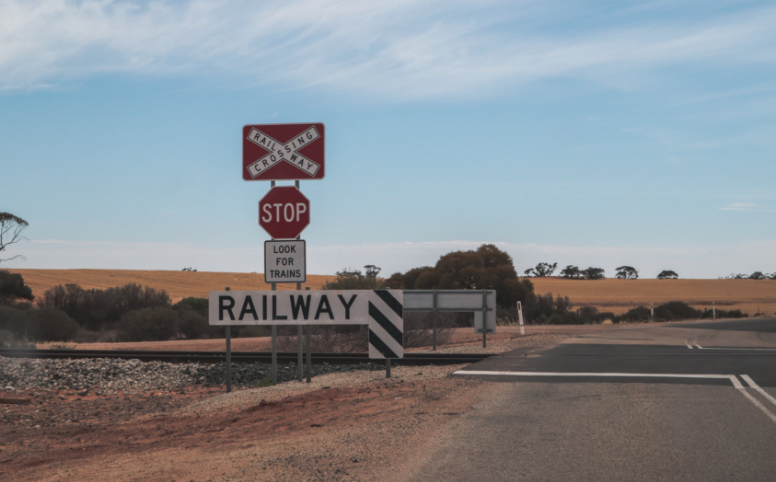1. What is the Rail Safety Improvement Program (RSIP)?
-
- Funding program to improve rail safety and reduce injuries and fatalities related to rail transportation.
-
What does the program fund?
- The ITR component funds projects that improve public safety at rail property and rail lines (both federally and provincially regulated) and research and development of technologies that can enhance the safety of rail lines.
-
What types of projects are eligible?
- Infrastructure projects (e.g., installing lights, bells, and gates, roadway improvements, grade separation)
- Technology implementation (e.g., intelligent transportation systems, innovative train detection and driver information systems)
- Research and studies to related to rail safety improvement
- Crossing closures.
-
Who is eligible to receive funding?
- Provinces and territories
- Municipalities and local and regional governments
- Road and transit authorities
- Crown Corporations
- Indigenous communities, groups, and organizations
- For-profit organizations
- Not-for-profit organizations
- Individuals
-
How much funding is available?
- Between 2016 and 2020, the Government of Canada allocated $71 million.
- Between 2020 and 2022, $62 million has been allocated.
- In 2018-19, RSIP funded 103 projects with a total value over $20 million
- In 2019-20, RSIP funded 136 projects with a total value of $16.5 million.
- This year, RSIP has allocated $25 million for funding 165 projects over 2020 – 2021.
-
How much funding is provided?
- Via Rail and for-profit organizations can receive up to 50% of total eligible expenditures. All other recipients can receive up to 80% reimbursement. The maximum contribution amount per recipient is $10 million per fiscal year and the maximum grant amount is $500,000. For grade crossing closures the maximum amount is $25,000 for public crossings and $6,000 for private crossings.
-
When are RSIP applications due?
- August 1, 2021 at 11:59 pm PDT.
-
Can RSIP issue advanced payments?
- RSIP reimburses expenses and/or issues payment upon completion of milestones. Applicants must identify the source of all project funding in their application. In-kind contributions can count as an eligible funding source.
-
What is the maximum project duration?
- Up to 2 years.
-
What are the eligible expenses that RSIP reimburses?
- Staff salaries and benefits
- Purchase and lease of capital assets, technology, equipment and supplies
- Professional services, including accounting, translation, audit, and consulting
- Planning, design, and evaluation
- Engineering and environmental reviews and follow-up measures
- Expenditures related to construction and rehabilitation of assets
- Licenses and permits
- Expenditures for aboriginal consultations
- Administrative expenditures
- Travel expenditures
- Other costs approved by Transport Canada
-
What are ineligible expenses?
- Costs incurred before the application date or after the final claim date
- Excess overhead charges
- Cost overruns that cause the federal contribution to exceed the amount outlined in the funding agreement
- Maintenance costs
- Expenditures for provincial sales tax and goods and services tax, or the harmonized sales tax where applicable, for which the recipient is eligible for a rebate, and any other costs eligible for rebates
- Purchase of land and/or buildings, related real estate fees and vehicles
- Leasing of land, buildings, equipment and other facilities, except for equipment directly related to the completion of the project
- Financing charges and interest payments on loans
- Expenditures that have been reimbursed from other sources of funding, federal statutes or funding programs
-
When can I begin claiming eligible expenses?
- Eligible expenses can be reimbursed beginning on the application date.
-
Does Transport Canada prioritize applications?
- Applications are prioritized based on (1) risk and identified safety issues and (2) potential for the project to reduce collisions (fatalities, injuries, and property damage).
-
How are applications evaluated and selected?
- Project relevance (how closely the project aligns with RSIP objectives and eligible activities)
- Quality of the application (clear and realistic activities, schedule, budget, results, roles and responsibilities)
- Value for money.
-
What types of information are important for a successful application?
- Historical collision data
- Train and traffic volumes
- Train and traffic speeds
- Crossing configuration
- Number of tracks and lanes
- Existing crossing protection
- Recommendations received from site inspections
- Participation of other public and private entities
- Applicants relevant experience and capacity.
-
How do I apply for RSIP funding?
- You must complete and submit the application using an online application portal. To access this portal, you need to obtain a GCKey. This is a unique electronic credential provided by the Government of Canada to communicate securely with online Government programs.
- The application comprises 11 sections with 60 questions/details to complete.
- You can complete the application in-house or contact TRAINFO to see if you qualify for complimentary services to complete an application on your behalf. We can typically complete an application within 2 weeks and usually require several hours of your time for data gathering.
-
If my application is accepted, am I committed to completing the project?
- If your application is accepted, you must first enter into a funding agreement. Failure to execute this agreement will disqualify the project from consideration.
-
I want to predict rail crossing blockages and traffic delays caused by trains and integrate this information into roadside signs, traffic signal systems, and emergency dispatch software. Is this an eligible RSIP project?
- Please email TRAINFO at contact@trainfo.ca for more information.


